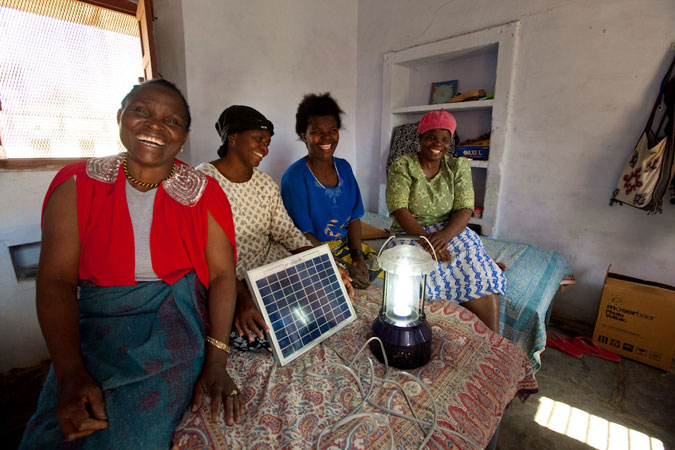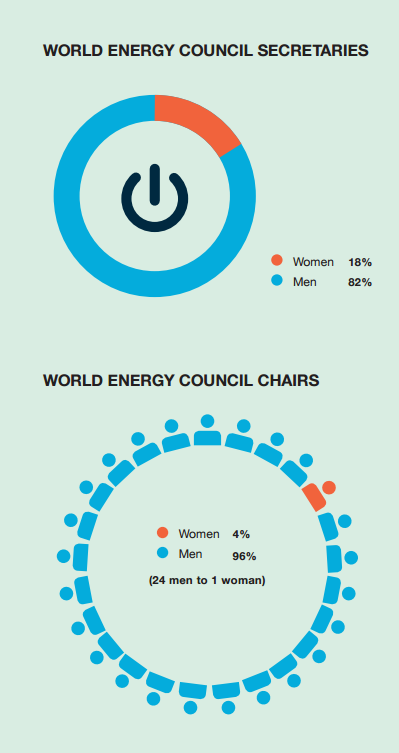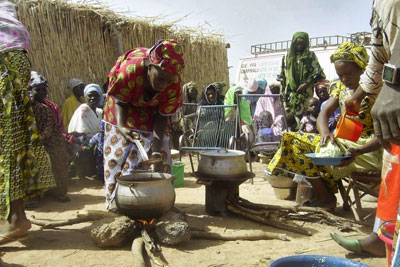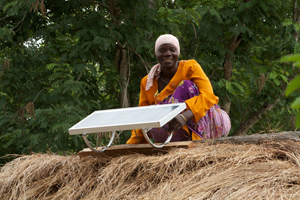SDG 7: Ensure access to affordable, reliable, sustainable and modern energy for all

Targets
- By 2030, ensure universal access to affordable, reliable and modern energy services.
- By 2030, increase substantially the share of renewable energy in the global energy mix.
- By 2030, double the global rate of improvement in energy efficiency.
- By 2030, enhance international cooperation to facilitate access to clean energy research and technology, including renewable energy, energy efficiency and advanced and cleaner fossil-fuel technology, and promote investment in energy infrastructure and clean energy technology.
- By 2030, expand infrastructure and upgrade technology for supplying modern and sustainable energy services for all in developing countries, in particular least developed countries, small island developing States, and land-locked developing countries, in accordance with their respective programmes of support.
Sustainable modern energy fuels development, from the light that allows a child to do her homework to streetlamps allowing women to travel safely home at night. Universal access requires energy to be affordable and reliable. Generating it must not irreversibly harm the environment.
In households, women are often the primary energy managers. When modern sources are not available, they spend hours each day collecting fuel to cook and heat their homes. Many suffer poor health through indoor air pollution generated, for example, by a rudimentary stove that smokes heavily as it burns wood or animal dung.
Some indications suggest that women are more likely than men to conserve energy—using up to 22 per cent less, including through a greater willingness to alter everyday behaviours [1]. However, women are largely absent in the industries that produce modern sources of renewable energy, comprising only 20 per cent of the workforce [2].
As primary energy managers in households, women could play powerful roles in extending sustainable modern energy. All elements of energy planning and policy-making need to factor in gender dimensions and actively advance women’s leadership. Within the energy industry itself, barriers to women executives, entrepreneurs and employees must fall. And their representation on national and global energy council must grow.
UN Women’s efforts extend energy access and enable women to electrify their communities. Through the Barefoot College in India, the entity has helped train illiterate older women from rural communities in various geographic regions as solar engineers. UN Women is also part of the Global Alliance for Clean Cook Stoves, which advocates for a global market for clean and efficient household cooking devices. In Ghana, UN Women’s Fund for Gender Equality has introduced green cook stoves. And since 2011, UN Women has sponsored the Gender Equality Award granted by the SEED Initiative, a global partnership for action on sustainable development and the green economy, which has prized many clean energy initiatives involving women. And new green energy programmes are in the pipeline.
Stories
In Mali, renewable energy boosts agricultural production
UN Women supports hundreds of women in 13 rural areas by transforming the economic and social landscape to support their resilience in the face of climate change. In areas with no electricity, the women receive solar- and gas-powered equipment allowing them to process and market local products.
Mothers lighting up homes and communities in rural Tanzania
On World Environment Day, a tribute to six mothers and grandmothers from three remote villages in southern Tanzania who are bringing renewable energy to their communities, serving as role models, and increasing women’s safety and voice in local development.
Notes
[1] UNIDO (2013), Sustainable Energy For All: The gender dimensions, p. 11.


